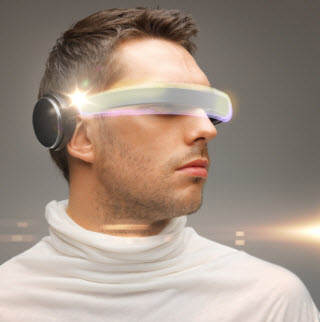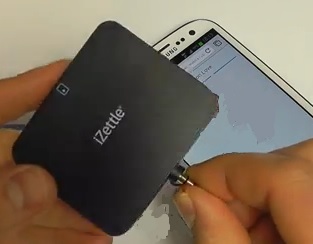Smart devices could provide users with the ability to see when they have previously been legally blind.
A new development regarding the use of augmented reality glasses is suggesting that these devices might be usable for individuals who have been declared legally blind, in providing them with the ability to see far more clearly.
Though this will not actually provide perfect vision, it could elevate the seeing abilities of some people.
The technology will not work for people who are completely blind. However, for individuals who have some level of vision, smart augmented reality glasses could help to provide them with an enhancement to this sense so that they can see better than they usually would.
This augmented reality based technology was developed by researchers at the University of Oxford.
 The Oxford researchers used smart augmented reality glasses that contain an infrared projector and a camera, to be able to display image and gauge distance. This way, when the camera detects certain objects or other people that are in front of the wearer, they can be displayed on transparent OLED lenses in a way that can help to provide the wearer with an idea of where they are.
The Oxford researchers used smart augmented reality glasses that contain an infrared projector and a camera, to be able to display image and gauge distance. This way, when the camera detects certain objects or other people that are in front of the wearer, they can be displayed on transparent OLED lenses in a way that can help to provide the wearer with an idea of where they are.
The augmented reality overlay can be adjusted to be displayed in a color that is most visible to the individual wearer, and its contrast can be adjusted to be much higher to make it easier to see for that person. Using this technology also makes it possible – in theory – for the glasses to be able to detect the difference between a person and an object. That way, a person who is legally blind would be better able to detect when they have things or people within their field of vision.
These augmented reality smart glasses function along with a gyroscope that is installed within them, as well as a GPS system and a compass, to provide a greater amount of data. Though they are far from restoring a full sense of vision, it can provide a system that is like AR to the wearer, considerably improving what can be seen.
At this point, the augmented reality vision devices are far from complete. Additional work is required. However, the researchers are ready to move ahead now that their discovery has won them a £50,000 prize from the Brian Mercer Award that they received from the Royal Society.

 The trial using the mobile payments services ran for a full month through five sellers who were provided with smartphones and a card reader from iZettle. This gave them the ability to expand the acceptable transactions from cash to credit and debit, as well. To use the service, vendors simply plug the card reader into the smartphone. The customers could then swipe their cards and either sign on the device screen or use a PIN to be able to complete the purchase.
The trial using the mobile payments services ran for a full month through five sellers who were provided with smartphones and a card reader from iZettle. This gave them the ability to expand the acceptable transactions from cash to credit and debit, as well. To use the service, vendors simply plug the card reader into the smartphone. The customers could then swipe their cards and either sign on the device screen or use a PIN to be able to complete the purchase.